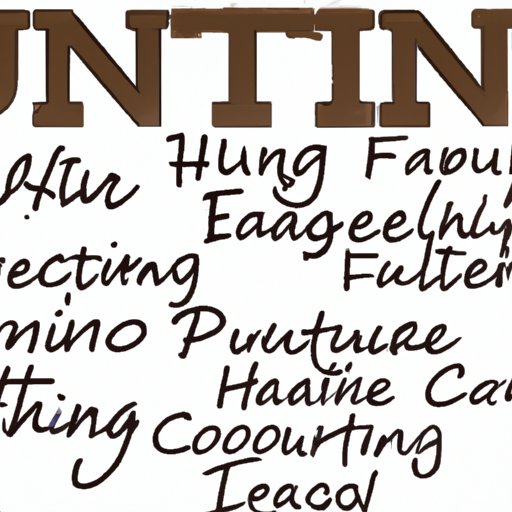Introduction
Hunting is the practice of pursuing or catching animals, typically for food, sport, or trade. It has been a part of human culture since prehistoric times, and continues to be practiced today in many parts of the world. In this article, we will explore the many benefits of hunting, including its positive impacts on wildlife conservation, its economic benefits, its health benefits, and its role in community bonding.
Benefits of Hunting to Wildlife Conservation
Hunting can have a profound effect on wildlife conservation. By controlling the population size of certain species, hunting can help maintain the balance of an ecosystem. Overpopulation of certain species can lead to competition for resources and the spread of disease, both of which can have devastating consequences for wildlife populations. Hunting can also help prevent overgrazing and habitat destruction, which are major threats to wildlife.
In addition, hunting contributes to the overall health of wildlife by providing necessary funds for research, conservation efforts, and educational programs. Hunting license fees and other related costs provide much needed revenue for these important initiatives.
Economic Impact of Hunting
Hunting can have a sizable economic impact on local and national economies. It is estimated that hunting generates over $22 billion in retail sales annually in the United States alone. Hunting-related activities such as equipment purchases, travel expenses, and lodging fees contribute significantly to the economy, creating jobs and generating revenue from licenses, permits, and fees.
Health Benefits of Hunting
In addition to its economic benefits, hunting can also have a positive effect on physical and mental health. Hunting requires physical activity such as walking, climbing, and carrying equipment, all of which can help improve overall fitness. It also increases mental alertness and hand-eye coordination, making it an ideal activity for those looking to sharpen their skills.
Role of Hunting in Community Bonding
Hunting can also play a role in community bonding. It encourages camaraderie among hunters, creating a shared experience between generations. Hunting can also foster an appreciation for nature, as it requires knowledge of the environment and respect for wildlife.

Unique Skills Required for Hunting
Hunting requires a variety of skills, such as patience and discipline, mastery of firearms, and knowledge of local terrain and environment. Successful hunters must also possess a keen eye and quick reflexes, as well as the ability to remain calm under pressure.

Tradition and History of Hunting
Hunting has a long and storied tradition that dates back to prehistoric times. It has played an important role in many cultures, with various techniques and strategies evolving over time. Even today, hunting remains a popular pastime, with numerous organizations dedicated to protecting the rights of hunters and promoting responsible hunting practices.

Nutritional Value of Wild Game
Wild game is an excellent source of protein and essential minerals and vitamins. Compared to other sources of meat, wild game is generally lower in fat and cholesterol, making it a healthier alternative. Furthermore, wild game is free of hormones, antibiotics, and other chemicals commonly used in commercial livestock production.
Conclusion
As this article has demonstrated, there are many benefits to hunting, from wildlife conservation to economic and health impacts. Hunting also plays a role in community bonding, requiring unique skills and knowledge, and is steeped in tradition and history. Finally, wild game is an excellent source of nutrition, providing essential vitamins and minerals without the added fats and chemicals found in commercially produced meats.
For those looking to pursue hunting as a hobby or sport, the rewards are plentiful. With proper guidance and safety precautions, hunting can be an enjoyable and rewarding experience.


